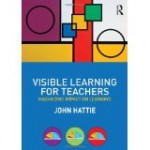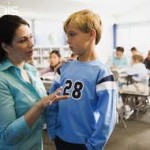I recall fondly looking forward to Saturday morning when I would make my way to the kitchen, make a cup of tea, scramble some eggs and begin to pour my way through the Saturday newspaper, soaking in all forms of information from travel destinations to the latest world events to the crossword puzzle. Through the week, I rarely made the time to read anything more than the entertainment section, so Saturday was a treat which quenched my thirst for knowledge.
These days, Saturday mornings look a little different. We have cancelled our subscription to the local newspaper as it has become thinner and thinner each month, and an electronic copy arrives in my inbox. All members of our family search for their specific information needs online. I still make that cup of tea, but not before I turn on my iPad and begin my morning reception of information. My first tap on the pad goes to my “inbox” and my gmail account, answering any emails that may have arrived over night. Then I quickly check out Facebook and catch up on what my friends are planning for the weekend, enjoy great photos and a variety of thought-provoking quotes. My final and most fruitful tap lands on Twitter. It is here that I am bombarded by information from some of the most fascinating education gurus, breaking news and links to blogs, pictures, links etc. I scroll through lists of Tweets, book-marking those that I want to re-visit, searching for others to “follow” and watching my own list of “followers” increase.
Never before have we had so much information at our finger tips. Gone are the days of having to methodically search for information, it now comes to us at a remarkable pace. Our job is to figure out what to digest and what to “pass on” and how to teach that skill to today’s students. Just being able to search for information is no longer good enough ~ We need to be able to do something remarkable with that information.
What skills do our students need to critically analyse all of the information that they have coming to them? What types of tasks/assignments do we need to develop and challenge our students to complete, with all of the information at their fingertips? What about, “Saturdays of Days Gone By”?






